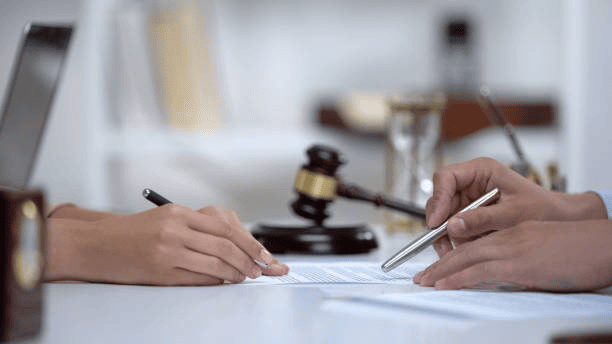Have you ever wondered how ‘cause of action’ works in criminal law matters in Australia? What gives individuals the power to seek justice and hold others accountable for their actions? This legal theory is a pivotal concept in the Australian legal system.
The term also refers to the legal theory upon which a plaintiff brings suit (such as breach of contract , battery, or false imprisonment ). The legal document which carries a claim is often called a ‘statement of claim.’
Often the facts or circumstances that entitle a person to seek judicial relief may create multiple causes of action. In this article, we will explore the essence of the cause of action in Australia and its significance in criminal law matters.
Demystifying Cause of Action
When a person wishes to bring a lawsuit or file a legal claim against another individual or entity, they must have a valid cause of action. In simpler terms, cause of action refers to the legal basis or grounds on which a claim or such a suit can be initiated.
It establishes the elements that courts must prove to establish liability and seek a legal remedy. In Australia, cause of action is derived from a combination of:
- Statutes
- Common law principles; and
- Precedents established by previous supreme or federal court decisions.
Exploring the Significance in Criminal Law Matters
Cause of action assumes particular importance in criminal law matters, where the state accuses an individual of committing a crime against society. In such cases, the cause of action forms the foundation for the prosecution to establish guilt beyond a reasonable doubt.
To better understand this, let’s use an example. Imagine a scenario where a person is charged with theft in Australia. The cause of action, in this case, would be the specific theft offence under the criminal law. To prove the accused’s guilt, the prosecution must establish the following elements:
- Dishonesty: They must demonstrate that the accused acted with dishonest intentions, intending to permanently deprive the owner of their property.
- Appropriation: The prosecution must establish that the accused took control of someone else’s property without legal authority.
- Property: It must be proven that the item in question qualifies as property under the legal definition.
- Belonging to Another: The prosecution must show that the property belonged to someone other than the accused.
- Intention to Permanently Deprive: Finally, the prosecution needs to demonstrate that the accused intended to deprive the owner of their property permanently.
By meeting these elements, the prosecution successfully establishes a cause of action for theft, enabling them to hold the accused accountable under the law.

Step-By-Step Guide
To grasp the concept of cause of action more comprehensively, let’s break it down into a step-by-step guide:
Step 1: Identify the Legal Issue
The first step in understanding the cause of action is to identify the legal issue at hand. Ask yourself: ”Did I commit any harm, legal wrong or wrongful act?” By identifying the specific legal injury or issue, you lay the groundwork for determining the action cause.
Step 2: Determine the Cause of Action Elements
Next, dive into the elements required to establish the cause of action. Research relevant statutes, precedents, and legal principles to understand what needs to be proven in court. Make a list of these elements to gain clarity and prepare for the legal process ahead.
Step 3: Gather Evidence
Once you have identified the elements, gather all relevant evidence to support your claim or defence. Evidence can include documents, photographs, witness statements, expert opinions, or other information substantiating your case. Strong evidence is crucial for establishing a cause of action successfully.
Step 4: Consult with Legal Professionals
It’s challenging to navigate the intricate world of law. Seek the guidance of experienced legal professionals, such as solicitors. These legal professionals can provide invaluable advice tailored to your circumstances. Their expertise will ensure you understand the nuances of cause of action and strengthen your case.
Step 5: Initiate Legal Proceedings
Armed with a thorough understanding of the cause of action, its elements, and the necessary evidence, you are ready to initiate legal proceedings. Whether you are the plaintiff or defendant, consult your legal representatives to file the appropriate documents and commence the legal journey.
Step 6: Present Your Case
During the court proceedings, present your case by meticulously presenting the evidence and demonstrating how each element of the cause of action is met. Craft persuasive arguments, rely on legal precedents, and engage with the court in a respectful manner. A well-presented case increases the likelihood of achieving a favourable outcome.
The Power of Cause of Action
Cause of action lies at the heart of the Australian legal system, empowering individuals to seek justice and hold wrongdoers accountable. By understanding the elements and following the step-by-step guide, you can navigate the complexities of the legal landscape with confidence. Remember, cause of action is not merely a legal term but a beacon of hope for those seeking recourse and fairness.
So, the next time you find yourself entangled in a legal dispute or pondering the foundations of justice, take a moment to reflect on the significance of this principle. It is through this principle that individuals can bring their grievances before the court. It also ensures that the wheels of justice continue to turn and the rule of law prevails.

Importance of Seeking Legal Action and Advice
When it comes to cause of action matters in the realm of criminal law, the expertise and guidance of a criminal lawyer can prove invaluable. JB Solicitors are legal professionals who possess the knowledge, skills, legal duty, and experience necessary to understand the criminal legal system and your legal rights. Let’s explore some ways our criminal lawyers can assist individuals with such matters.
One of the primary roles of our criminal lawyers is to provide sound legal advice and assess all cases. Law is difficult and we can thoroughly review the details of the case, identify potential defences, and determine the likelihood of success. By leveraging our legal expertise, we can offer strategic guidance and help individuals make informed decisions about how to proceed with their cases.
In some instances, we may engage in negotiations with the opposing party to reach a plea bargain. A plea bargain is an agreement between the prosecution and the defendant. It typically involves the defendant pleading guilty to a lesser charge or receiving a reduced sentence in exchange for cooperation or considerations.
Contact us today for all of your criminal law or contract law matters.
